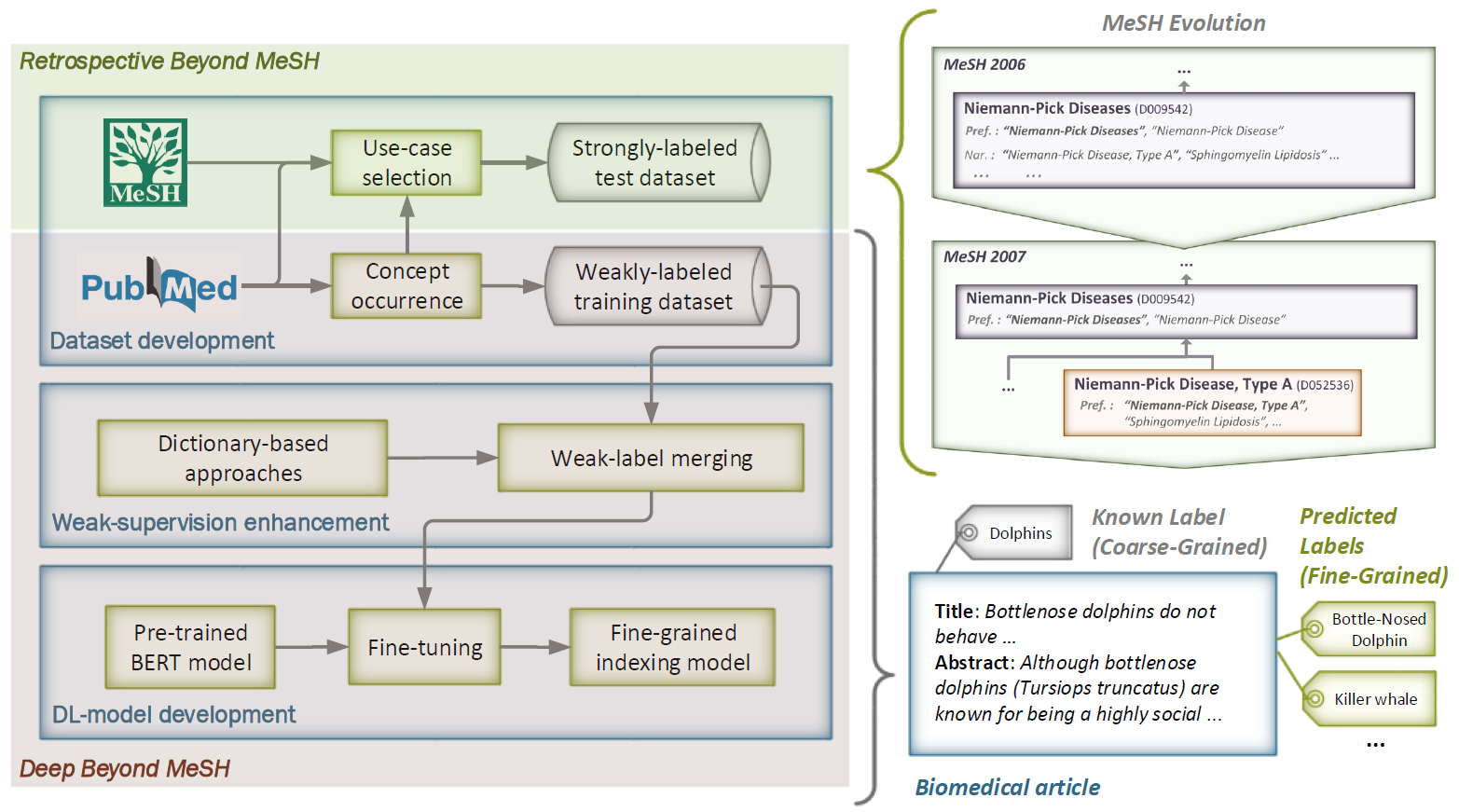Large-scale investigation of weakly-supervised deep learning for the fine-grained semantic indexing of biomedical literature
Objective: Semantic indexing of biomedical literature is usually done at the level of MeSH descriptors with several related but distinct biomedical concepts often grouped together and treated as a single topic. This study proposes a new method for the automated refinement of subject annotations at the level of MeSH concepts. Methods: Lacking labelled data, we rely on weak supervision based on concept occurrence in the abstract of an article, which is also enhanced by dictionary-based heuristics. In addition, we investigate deep learning approaches, making design choices to tackle the particular challenges of this task. The new method is evaluated on a large-scale retrospective scenario, based on concepts that have been promoted to descriptors. Results: In our experiments concept occurrence was the strongest heuristic achieving a macro-F1 score of about 0.63 across several labels. The proposed method improved it further by more than 4pp. Conclusion: The results suggest that concept occurrence is a strong heuristic for refining the coarse-grained labels at the level of MeSH concepts and the proposed method improves it further.
PDF Abstract
